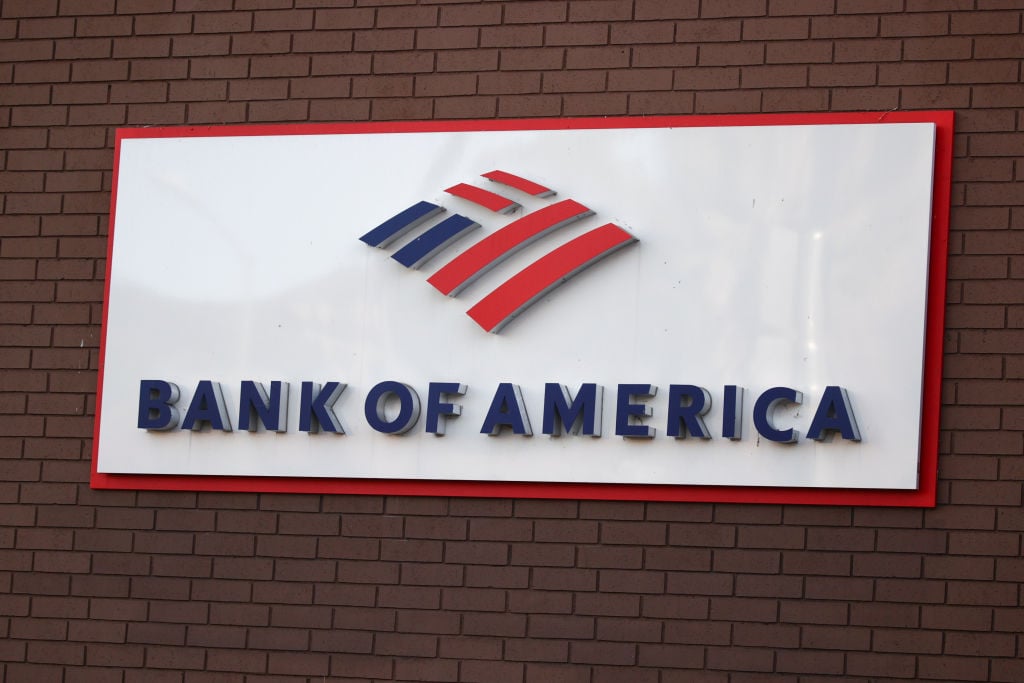
Less than a week after investors learned of a yet another massive multibillion-dollar legal settlement in the works at Bank of America (BAC +0.72%), the nation's second largest bank by assets announced Monday morning it has suspended its much-touted dividend and share buyback increases effective immediately. If you're a shareholder of the Charlotte-based bank, you'd be excused for being disgusted.
There's no reason for me to delve into the details of the latest announcement, as my colleague Patrick Morris has already done an excellent job at that -- click here to see his explanation. The long and short of it is this: Bank of America incorrectly accounted for complicated financial assets acquired in its 2009 acquisition of Merrill Lynch. The error caused it to overestimate its regulatory capital ratios, which, in turn, is why the Federal Reserve demanded a suspension of its recently approved capital plans.
The news on Monday serves as a serious blow to the narrative that Bank of America has finally put its previous misdeeds in the rearview mirror -- one that I had ascribed to. According to my research, the bank has been on the hook in 47 major legal settlements since the financial crisis -- and at least four more are in the works. The cases run the gamut from submitting fraudulent documents in foreclosure proceedings, to racial and gender discrimination, to rearranging customer debit-card transactions in order to maximize overdraft fees, to originating toxic mortgages which were then sold to institutional investors, to fixing the results of ostensibly neutral credit card arbitration proceedings. And the list goes on.
Does the latest revelation rise to the same level as these? In and of itself, the answer seems to be "no." In the first case, while it seems like accounting for the value of financial instruments should be a relatively cut-and-dry exercise, the reality is that there's as much art to the process as there is science. On top of this, as Patrick discussed in the article cited above, Bank of America should be given credit for being forthcoming with the discovery to its regulators -- though, it's certainly a revealing commentary on corporate America and the financial industry in particular that one feels the need to commend honesty.
At the same time, news that Bank of America has suspended its long-awaited dividend increase must certainly leave analysts and investors wondering when enough is enough. In the field of law, evidence of past misdeeds generally isn't admissible to prove subsequent crimes. An important exception is if the volume and nature of past misdeeds rise to the level of habit, in which case the previous indiscretions can be used to prove that a person – or, in this case, a company -- merely acted in conformity with them at a later date. My point is that perhaps the mounting tally of legal settlements and revelations of highly questionable business practices aren't exceptions to Bank of America's standard operating procedure. Instead, perhaps they are its standard practice.
Take this excerpt from Warren Buffett's 1985 letter to shareholders:
In any business, insurance or otherwise, 'except for' should be excised from the lexicon. If you are going to play the game, you must count the runs scored against you in all nine innings. Any manager who consistently says 'except for' and then reports on the lessons he has learned from his mistakes may be missing the only important lesson -- namely, that the real mistake is not the act, but the actor.
Aside from the irony that Buffett's Berkshire Hathaway (NYSE: BRK-A) is Bank of America's biggest shareholder, I think shareholders would be smart to take his comments into consideration.
It's worth observing, for instance, that the bank has continued to behave in questionable ways even after falling squarely under the gaze of regulators and consumers. To name only one example, at the end of last year, Bloomberg News revealed a secret office set up by the bank and misleadingly named the "Office of the CEO and President." Its purpose was to reassure aggrieved mortgage customers that complaints were being taken seriously by people at the pinnacle of the banking behemoth. But the reality couldn't have been further from the truth -- both figuratively and geographically -- as the calls were actually routed to independent contractors based in Broomfield, CO.
The question for long-hopeful shareholders of Bank of America is this: Is it finally time to abandon ship? Although it's tempting to answer this in the affirmative, I can't help but admit that I'm still optimistic about the bank as a long-term investment. Granted, it has major problems. And granted, many of these problems are revealing not just about its past practices but about its current ones as well. Yet, over the long course of time, I, perhaps naively, believe that the bank will someday move beyond these issues once and for all. Unfortunately, as we learned yet again on Monday, it will just take even longer than previously thought.








